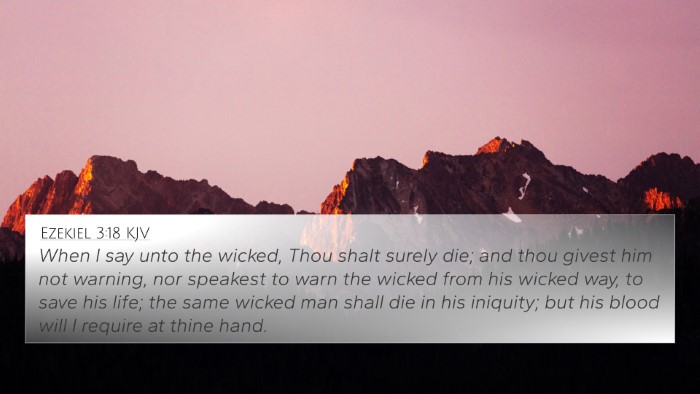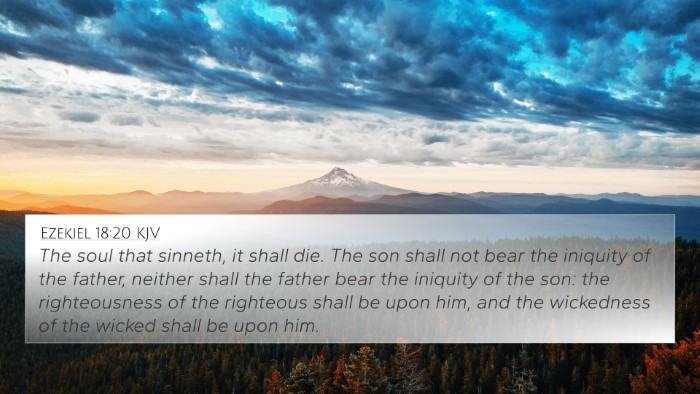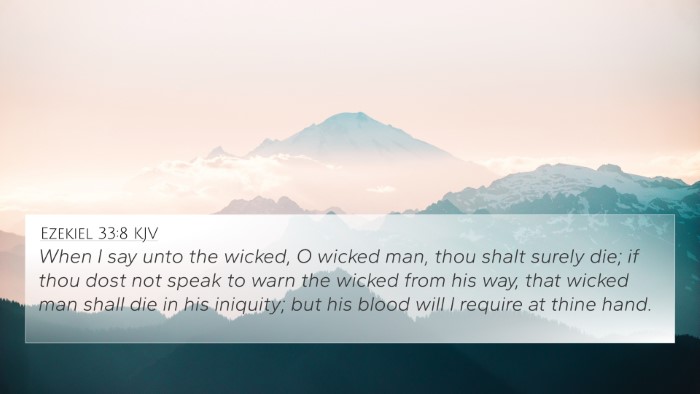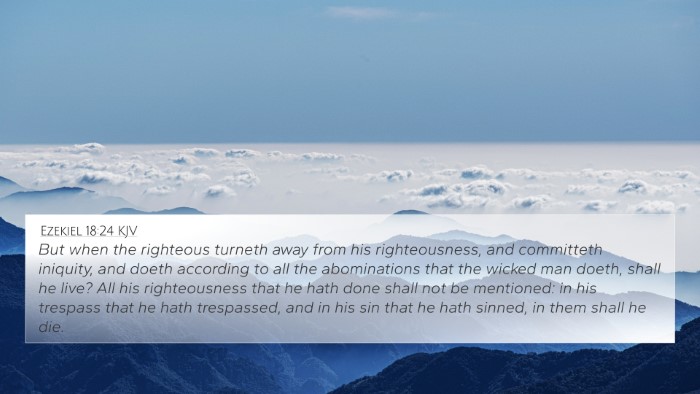Ezekiel 33:6 - Meaning and Interpretation
Ezekiel 33:6 states: "But if the watchman sees the sword coming and does not blow the trumpet, and the people are not warned, and the sword comes and takes any one of them, that person is taken away in his iniquity, but his blood I will require at the watchman's hand."
This verse carries significant weight in the overall message of responsibility and accountability in spiritual leadership. Here, Ezekiel describes the critical role of a watchman—someone whose duty is to warn the people of impending danger. The imagery of a watchman is foundational in understanding how God expects leaders to be vigilant.
Summary and Insights from Public Domain Commentaries
Drawing insights from notable theologians like Matthew Henry, Albert Barnes, and Adam Clarke, we can break down the meaning of this scripture as follows:
-
Matthew Henry:
Henry emphasizes the moral obligation of spiritual leaders to be alert and proactive. The watchman symbolizes those appointed by God to oversee the spiritual welfare of others. If they neglect this duty, the consequences not only affect their charges but also result in their own accountability before God.
-
Albert Barnes:
Barnes points out that the watchman failing to sound the alarm represents a serious lapse in duty. The warning is more than a call for repentance; it’s also foreshadowing imminent judgment. Each individual is responsible for their iniquities, yet the neglect of the watchman exacerbates this tragic outcome.
-
Adam Clarke:
Clarke interprets this verse as a dual warning. He sees the blood of those lost due to the watchman's negligence being required at the watchman’s hand, indicating that spiritual leadership comes with severe responsibility and highlights God’s justice in requiring accountability.
Key Themes and Connections
The message of Ezekiel 33:6 can be explored through several key themes:
- Responsibility of Leadership: Spiritual leaders are tasked with the moral obligation to warn the people.
- Consequences of Inaction: The verse highlights that failure to fulfill this duty has severe consequences not only for the people but for the watchman as well.
- Justice of God: God holds leaders accountable for the souls they've been entrusted with, emphasizing His justice.
Bible Cross References
Ezekiel 33:6 relates to several other Biblical texts, providing a deeper understanding of its meaning:
- Isaiah 58:1: "Cry aloud; do not hold back; lift up your voice like a trumpet; declare to my people their transgression." This verse underscores the duty to warn people of their sins.
- Jeremiah 6:17: "I set watchmen over you, saying, 'Pay attention to the sound of the trumpet!'" Again, the role of a watchman is emphasized.
- Ezekiel 3:17: "Son of man, I have made you a watchman for the house of Israel." This verse illustrates God’s command for Ezekiel's prophetic duty.
- Matthew 24:42: "Therefore, stay awake, for you do not know on what day your Lord is coming." This speaks to the vigilance required of all believers.
- Hebrews 13:17: "Obey your leaders and submit to them, for they are keeping watch over your souls." This reinforces the concept of leaders as watchmen.
- James 3:1: "Not many of you should become teachers, my brothers, for you know that we who teach will be judged with greater strictness." Here, the gravity of the watchman's responsibilities is reiterated.
- Revelation 2:5: "Remember therefore from where you have fallen; repent, and do the works you did at first." This highlights the call to repentance, central to the watchman's role.
The Importance of Cross-Referencing in Scripture
The concept of cross-referencing Bible verses is crucial for deeper understanding. It allows for a more comprehensive interpretation of theological themes:
- Tools for Bible Cross-Referencing: Utilizing a Bible concordance or cross-reference guide can assist in identifying these connections.
- Cross-Reference Bible Study: Engaging with cross-references enriches personal study and enhances sermon preparation.
- Identifying Themes: Recognizing inter-Biblical dialogue between prophets and apostles can reveal greater insight into the continuity of God’s message.
Conclusion
Ezekiel 33:6 serves as a powerful reminder of the weighty responsibilities that spiritual leaders bear. Through the watchman imagery, we are cautioned about the eternal consequences of neglecting our duties to warn and guide others. This scriptural portrayal not only connects to various other Bible verses but also encourages believers to foster a community of accountability and vigilance.













